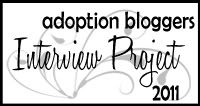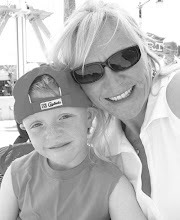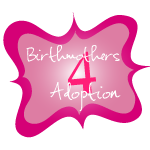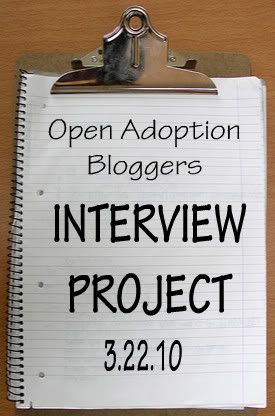
Welcome to another Open Adoption Examiner book tour! It's the tour that takes place from the comfort of your own sitting area, so get yourself some coffee or tea and pull up a virtual chair. And while it's nice to have read the selected book, it's not required.
For the next three days, we are delving into the first parent perspective with a book by James L Gritter that was first published in 2000, LifeGivers.
Lori, of Open Adoption Examiner Fame!, has asked several writers to participate by answering question about the book we read and how it pertains to our lives and experiences. She has set up three individual posts on her blog and I encourage you to follow the link by clicking on the title of this post, which will take you to her Open Adoption Examiner page with all the other information and writers answers. Very informative for anyone in the triad, and this book is a must read for any one who wants to understand the adoption from a birth parents perspective. Thank you James L Gritter for such a heartfelt and honest book! I reccommend it to all!
Interview with Kelsey Stewart, Birth Mother and Author of The Best For You:
In the introduction James Gritter uses his imagination to try and enter the experience of birthparents. He goes on to describe what he thinks it would feel like:
But I am not a happy birthparent...I want to scream at the unfairness of it...I am also profoundly bewildered. Everything is out of control...my bones are sad. I am a bundle of worry. I want this crazy dream to stop.”
Q from Open Adoption Examiner: I am not a birthmother, but this is also how I imagine I would feel if I had just placed my child for adoption. How close is this to the reality of a birthmother? Were these feelings instantaneous for you, or did you suppress them for some time? Did having an open adoption help you at this time?
Kelsey~This particular piece of writing describes very well what I was feeling. There is much more to it, but for someone who is not a birth parent, his description is pretty good. It did feel unfair, it was like living in a daze. I wasn't sure which emotion would come up next. When he said "My bones are sad." well, that one got to me. What an amazing description.
It was pretty instantaneous for me, a little before hand to be honest. My last month in my first pregnancy was horrific because of emotional abuse by the State that I lived in so it was very up front for me the length of time I had left. I knew that with each passing day it was coming closer to our separation which left me with a lot of anxiety. People say, well if you were already feeling that, then why didn't you stop it? Because just as I have always said, I knew that it was the best thing for her. I never really suppressed anything because I talk a lot! Spent hours talking to my mother about all that I was feeling, she helped immensely!
Q from OAE: How did you get on with your lives?
Kelsey~I just took one day at a time. In the beginning, it was very difficult to not think about the entire day. Everything I saw would relate to children. I remember sitting on my couch and flipping through the channels it seemed that ever talk shows topic was adoption or adoption reunions. I could not get away from it! I had to go out and keep myself occupied with things now at all related to children to keep my sanity. I would go bowling, I would go visit with friends, I would play softball, I would do everything possible not to be alone with my thoughts. Slowly, the guilt became less and less, and then there were days when I would even smile just knowing that they were being loved by their families. The love of my life, my soul mate and best friend was truly my saving grace. He saw me through all the hard times and taught me that life has many pitfalls and it also has many rewards. He reminded me that those rewards may be years down the line, but to not live life is a form of defeat. He was right, and years down the line I have been rewarded with the understanding and acceptance of all three of my children that I placed for adoption.
Then, once I had my own children to raise...I was reminded every single day that what I really did was create a family that may have never been created. Watching my own children grow and learn taught me that sometimes letting go is the absolute best you can do for your children.
Gritter describes three dimensions of parenting: (1) lifegiving, (2) life sustaining, and (3) life affirming; the first and second are exclusive to birth parents and adoptive parents, respectively, while the third is shared by each as they demonstrate interest in, love and care for, and acceptance of the child (at 152-153). He provides an extensive list of ways in which birth parents “fit in” to the child’s life that go far beyond giving life and biological information (at 158-160). Gritter believes it is in the child’s best interest to create a cooperative “interdependence” where both birthparents and adoptive parents share responsibility for the child’s well being with unconditional love and acceptance.
Q OAE:To what extent were you informed before placement about the importance of birth parents in the child’s life?
Kelsey~I had examples in my own family of what being a birth mother was all about. I had relatives that fit into the Era of Mass Surrender or EMS. This was the time when women were told they had to give their children up, sometimes tricked or coerced into signing papers and then never knowing the child or where they might be. I saw the toll that it took on their lives, their souls. These beautiful, strong women were former shells of themselves, riddled with guilt and wonder as to who or where their children were. It was obvious that if they did at least know where and how their children were, it would have made a huge difference in their lives after giving birth. I saw how distracted they were, how crushed they felt to know that their baby was out there and had not idea just how much their mother was thinking of them. In seeing them this way, I knew that I did not want that for my children...I always wanted them to have access to me to ask those tough questions, to know that I was going to always think about and care about them. I also had many friends who were adopted who told me their issues growing up adopted and I took to heart when they said..."I always wondered if she thought about me? If she celebrates my birthday? What she does on Mother's Day? I just wonder if she has forgotten all about me?" I wanted to make sure in my adoption that my children NEVER had those questions. I wanted a good line of communication between me and the families so that over the years no one felt uncomfortable with the situation, no one felt left out, and no one felt that they could not inquire from time to time..."Who am I and where did I come from." I think adoptees really want to know the answers to these questions and we as parents need to guide them along their journey. If it is a mutual effort to provide that , I think it says a LOT to the adoptee that everyone just wants what is best for the child.
Q OAE: If you are a birth parent, were you counseled about the importance of open adoption to your child, or was openness minimized?
Kelsey~I was counseled, but not enough. Like I said, I knew many adoptees and I took their words to heart more than the literature that the State gave me. My friends were very honest and told me up front what their troubles were growing up and I had a pretty good idea of what I need to do to make sure that I was always reassuring the parents and my children just how much they meant to me, how much I missed them, and just how proud I was of them. Sometimes it only takes a few words to make someone feel loved and appreciated, and I think that is what I did for my children.
Q OA:What has been your experience and opportunity to fulfill the role described by the author?
Kelsey~When you take charge of your life and your destiny, you can make of it what you want. I made sure that the parents that I chose knew that I would not be able to live life not knowing who my children were, not knowing how they were, not knowing what they were accomplishing and thankfully I chose wisely. The adoptive parents have been more than fantastic about allowing me to see pictures of them, allowing me to send the kids cards or letters telling them that they are still in my heart, and just keeping the communication open between all of us to make everyone comfortable when it comes time for the face to face reunions that will follow. All of my children are in their late teens and twenties now...and I can tell you that our communication back and forth has made a world of difference because they are all healthy, happy and very grateful kids who not only understand why I chose adoption for them, but they respect my reasons for it. Nothing like the feeling of knowing that my children understand that I was only trying to do what was best for them, and in the end...that was the right decision of all of us.
To continue to the next leg of this book tour, please visit the main list at The Open Adoption Examiner.































3 comments:
"I just took one day at a time."
This can be such a universal way to deal with trauma, to simply be present. I remember feeling the same as you (but different) when I was experiencing infertility that every show was about people having babies!
Also, your point about communication is well taken. I'm glad you have such a good relationship with all your children.
Thanks for your thoughts, Kelsey!
thanks so much for sharing your perspective, kelsey. yours is such a wonderful voice to shine that light you mention above.
Thank you Luna for coming to read, and what wonderful words you have for me! I think it is good to hear all takes on life in adoption, there are many voices out there that can make a difference for someone else.
Post a Comment